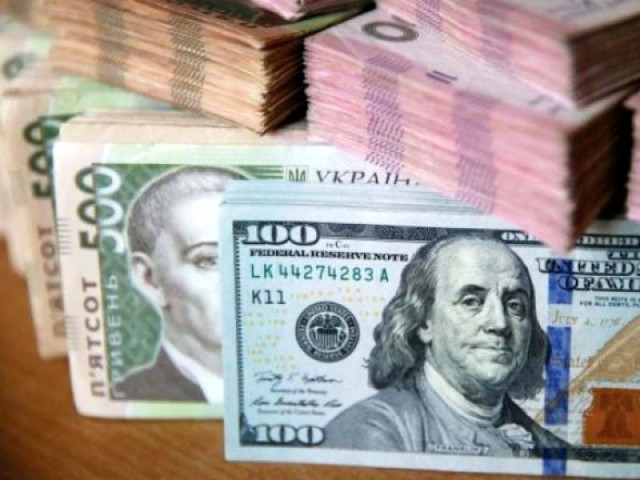SBP proposes changes in rules for foreign currency account holders
Presents draft before Senate panel to limit tax-free inflow of remittances to Rs10m a year

It proposed to repeal the Foreign Currency Accounts (Protection) Ordinance, 2001 and bring amendments to two laws that promote money laundering in a legal manner. PHOTO: FILE
The central bank shared its draft on Tuesday with the Senate Standing Committee on Finance with an aim to introduce sweeping changes in the current extremely liberal foreign exchange regime.
It proposed to repeal the Foreign Currency Accounts (Protection) Ordinance, 2001 and bring amendments to two laws that promote money laundering in a legal manner.
Weekly review: KSE-100 endures roller-coaster ride, ends 0.41% lower
The central bank recommended to the finance ministry to amend the Protection of Economic Reforms Act (Pera) of 1992 to make it binding for foreign currency account holders to give a declaration and stop feeding these accounts through cash by buying dollars from the open market.
In yet another significant amendment, the central bank also recommended that the current legal regime of asking no questions about the source of foreign remittances and not taxing them should also be ended. It said only up to Rs10 million foreign remittances should not be taxed.
The SBP’s latest policy stance is contrary to its earlier reaction to the amendments in Pera proposed by former finance minister and the Senate Standing Committee on Finance Chairman Saleem Mandviwalla. In October 2016, Senator Mandviwalla had proposed the amendments to stop misuse of the Pera 1992 by foreign currency account holders. They exploited the protection, as the existing law stops officials from asking any question about the purpose of these transactions.
For the last one and a half years, the federal government and the SBP have opposed Mandviwalla’s amendments but finally the central bank brought its own draft bill to plug the lacunas in the law.
The proposed draft bill seeks to amend Pera 1992, Income Tax Ordinance 2001 and to repeal the Foreign Currency Accounts Ordinance 2001 in order to issue necessary instructions to effectively regulate outward transfer of locally generated foreign exchange by imposing appropriate restrictions on feeding of foreign currency accounts through cash.
The central bank has sought repeal of the Foreign Currency Accounts Ordinance of 2001 that provides complete protection to foreign currency accounts. According to an earlier statement of the SBP, every year $2 billion are sent out of Pakistan through these foreign currency accounts.
Similarly, the SBP has proposed amendment in section 4 of Pera Act to make it binding on the account holders to give declarations. Two amendments have been proposed in section 5 of Pera in order to withdraw the secrecy and stop feeding of these accounts through cash.
The Protection of Economic Reforms Act of 1992 has practically eclipsed the Foreign Exchange Regulation Act of 1947 as a result of which it has become difficult for the SBP to pursue the foreign exchange regime in an effective manner, said the central bank.
The protections available in Pera have further been enforced through Foreign Currency Accounts Protection Ordinance 2001, it added. The SBP also proposed amendments in notorious section 111-4 (a) of the Income Tax Ordinance of 2001 that is used to legalise the illegal money. It suggested limiting the tax-free inflow of remittances to Rs10 million in a tax year.
Public-private dialogue: Minister stresses consensus on economic roadmap
The Income Tax Ordinance 2001 exempts foreign exchange inward remittances from being taxed without any limit. “It is observed that sometimes locally generated untaxed and illegitimate funds are sent out of Pakistan using illegal channels and brought back through banking channel in order to legitimise such funds besides availing exemption from tax,” said the SBP.
The freedom from imposition of income tax available under the provisions of Income Tax Ordinance 2001 in respect of foreign exchange remittances received through banking channel is being curtailed to only Rs10 million in a tax year, it added. The standing committee asked the SBP and the finance ministry to bring separate amendments in the tax laws and the foreign exchange regime laws.
Amending more than one laws with one piece of legislation may allow people to challenge these amendments in the courts, said Senator Kamil Ali Agha of the PML-Q. The committee said the amendments in the Income Tax Ordinance should be brought at the time of upcoming budget.
Published in The Express Tribune, February 21st, 2018.
Like Business on Facebook, follow @TribuneBiz on Twitter to stay informed and join in the conversation.



















COMMENTS
Comments are moderated and generally will be posted if they are on-topic and not abusive.
For more information, please see our Comments FAQ